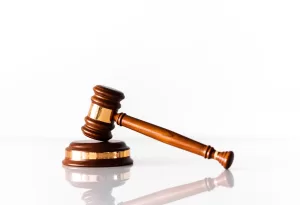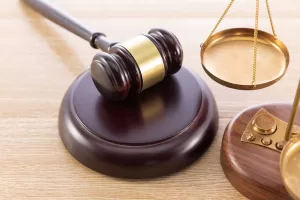In the UAE, circulating defamatory remarks on social media is no different to printing them in newspapers, books, or periodicals, however the penalties might be much more severe and the easily accessible and informal nature of social networking can catch writers off guard. Given the immediate and largely uncontrollable dissemination of ideas posted to social media sites, which may be re-posted and “go viral” in minutes to an audience far beyond that intended by the original author, arguably the danger of damage via social media is greater than traditional “print media. “This post explains UAE defamation law and advises firms and people on how to avoid criminal liability in the UAE.
What is the definition of defamation?
The penal code has two main defamation offenses defined in Articles 372 and 373 of Federal Law No. 3 of 1987 (as amended) (the “Penal Code”). False accusation that dishonors or discredits the victim in the public eye is prohibited by Article 373.
To win a defamation lawsuit, the plaintiff must show that:
- The words and actions of the defendant are not those of a reasonable and prudent person; therefore, he or she is responsible for making a false or defamatory statement.
- The contract may be offered or tendered to a third party (either in writing or orally).
- The statement is liable for any damage caused by it to the complainant.
The absence of any of these elements will invalidate the case.
In a landmark case, the Court of Cassation in Dubai ruled that an insulting statement is likely to subject the defamed individual to “vengeance” or “humiliation” among their community. In a more recent ruling, the Court held that mild criticism may be considered defamatory if it goes beyond acceptable limits and damages a person’s honor. Individuals who are convicted of an offence under the Penal Code can face a sentence of up to two years in prison or fined up to AED 20,000. This would be considered an aggravating circumstance if the statement is directed against a public official, which may enhance the penalty.
It’s possible that people will be fined or imprisoned for making remarks which harm someone’s reputation and family. At the more serious side of the spectrum, insults to a person’s honour or family may result in harsh penalties. It is also a separate offense to insult, abuse, or despise any religion using any method. Defamation is not a civil action in the UAE; nevertheless, the plaintiff may bring a tort claim for damages, which is equitable to “wrongful acts that harm,” and he or she might be eligible for compensation, provided the elements can be established.
Electronic Defamation means
Furthermore, defamatory statements made over social media or via other electronic means (including WhatsApp, websites, SMS and email) may be a violation of Federal Law No. 5 of 2012, the “Cyber Crime Law”, which is punishable by imprisonment up to two years or a fine.It is a violation of Article 20 of the Cyber Crime Law to insult others or make an allegation against them that may subject them to penalty or contempt by others utilizing a computer network or information technology method. It’s also forbidden by Article 39 of the Cyber Crime Act for any website or information network owner or operator to store or distribute illicit material if they are aware of it. This implies that web and group owners may be held responsible for improper postings by members.
In the case of a violation of Article 20, the punishment can be imprisonment for a maximum period of ten years and a fine between AED 25,000 and AED 500,000, as well as deportation if the offender is not a citizen. If the statement is made against a public official, it will be considered an aggravating circumstance, which might boost the penalty. It’s similar to defamation lawsuits under the Penal Code in that if the statement is made against a public officer, it will be taken into account as an aggravating element that may raise the penalty.
Employers’ Risks
When businesses utilize social media, they should make sure to inform their employees about the possible dangers. Even if the problem was not in the course of their job or had nothing to do with the employer’s name and brand, the employer will undoubtedly be involved in the process because they sponsor the individual to live and work in UAE.
While an inquiry is ongoing, the Police may require access to office computers. The Cyber Crime Law also allows for the confiscation of any devices used to commit cybercrime, as well as data erasure and website closure on the Court’s orders if necessary. If an employee’s views are represented or taken on behalf of the employer, and if the defamatory material is subsequently posted by that employee, then both the employee and his or her manager might be charged with a criminal offense.
How to file a defamation case in the United Arab Emirates?
Defamation and slandering the law are all considered extremely seriously in the UAE. The legal course available to a person whose reputation is damaged by another individual has been established by the legislation. Any person who wants to report a crime must begin at the police department and then proceed to the public prosecutor’s office. Every defamation victim has three months after discovering his or her injury to file a complaint with the police station.
How to file a complaint against the defendant?
- You may file a complaint with the Dubai Police Department’s website, or you may use the mobile app.
- You may also go to the nearest police station or call 999.
- In the event that an employee believes a memo or letter addressed to him/her is defamatory, he/she may file a complaint with the Emiratisation and Human Resources Ministry.
If the police determine that your complaint has merit for prosecution, they may file a case against the offender. The case will then be handed to the public prosecutor, who will decide whether or not to bring charges under UAE Penal Code and Defamation law. The prosecutor must question the accused in the first 48 hours of the filing of the complaint. After a criminal court ruling is issued in favor of victims, they can apply for civil damages for both tangible and intangible losses.





